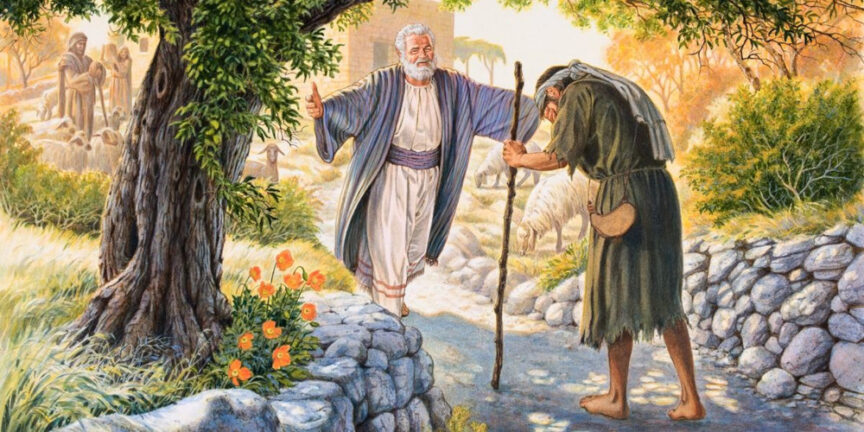“There was a man who had two sons. The younger of them said to his father, ‘Father, give me the share of the property that will belong to me.’ So he divided his property between them. A few days later the younger son gathered all he had and traveled to a distant country, and there he squandered his property in dissolute living.”
Luke 15:11-24
In the ancient world inherited property was divided according to the law of primogeniture. All property went to the sons of the property owner, and the first born son got twice as much of the division of wealth as the other sons in the family. Thus, if there was two sons, the first got two-thirds of the property, and the other son got one third. If there were three sons, the first got half of the property, and the other two sons each got one quarter of the wealth, and so forth.
In this Jesus story, a greedy younger son went to his father and said, “Give me what will be mine when you die.” In other words, he was treating his father as if he had died. What he would have received would have been the liquid wealth, assets such as financial holdings and other portable wealth. The first born son would have gotten property wealth.
The striking thing about this story is the callousness of the young son. It was almost as if he was saying to his father, ‘You are dead to me. I want to be free of the constraint of family and my relationship to you.’
What is striking about the father is that he does not try to restrain his foolish son. He relinquishes the wealth the son is demanding. And without embrace or looking back, the boy leaves his home, his mother, father, and brother and becomes anonymous.
I imagine the young man getting off a bus in the Port Authority Bus Terminal in NYC and walking off into the millions of people there. His only strategy is to spend the money, and eventually his wealth was gone. Spent on wine, women, and song. If the story was cast today, you’d find the boy sleeping homelessly on a piece of cardboard under and over him to keep warm. Eating a daily meal at a soup kitchen.
Jesus told the parable to illustrate the value that a single human has to God, represented by the Father in this parable. But it also is a a great comment about the utter selfishness of which a human is capable. And it shows the extremes to which a person may have to go before turning his life around.
The greatest realization that the young man made was that to return to his father as a common household servant was still more humane and loving than to continue in his own depravity – sitting in a smelly, filthy pig pen eating pig food.
It is also apparent how unconditional God’s love is. He drops what he is doing to welcome and help his repentant son.
Something to think about: When have you been guilty of demanding your own way? How did it affect you to do so?
Something to pray about: Our Father, we acknowledge that we are often selfish and self-serving. We pray that we will have wisdom to stay within your embrace and not seek our own will. Help us stay away from the distant land. In Jesus’ name. Amen.

